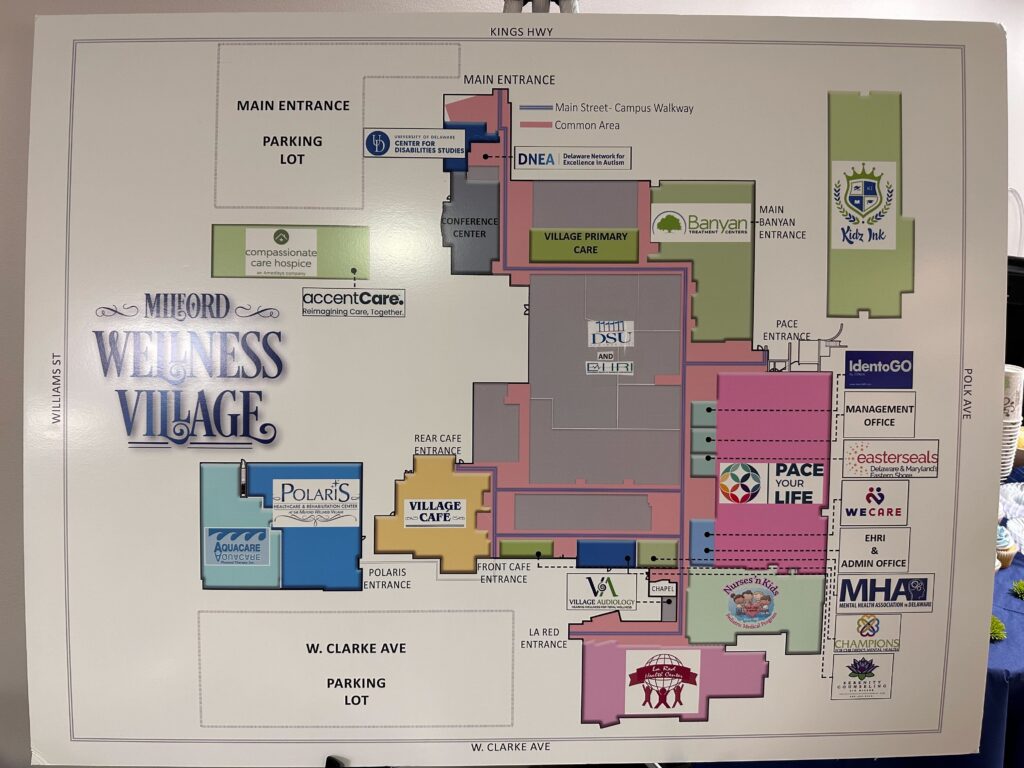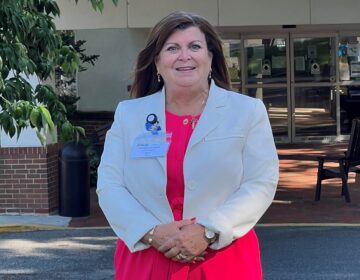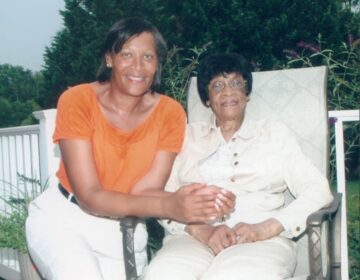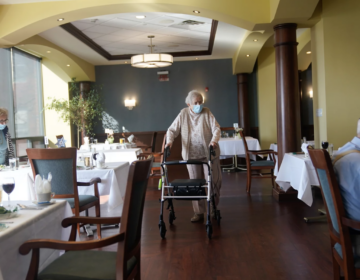Delaware launches $5M program to help state’s aging population and workforce shortage
The Geriatric Workforce Enhancement Program will help boost geriatric health care through research and develop training programs.
Listen 1:24
The official signing of the $5 million, five-year Geriatric Workforce Enhancement Program that will take place at the Milford Wellness Village, the projects base location. (Johnny Perez-Gonzalez/WHYY)
From Philly and the Pa. suburbs to South Jersey and Delaware, what would you like WHYY News to cover? Let us know!
Delaware has been actively working to build a more skilled and better quality health care workforce over the past few years. In part because of the popularity of the state’s beach communities with retirees, the makeup of the state’s population is rapidly aging. That creates pressing questions for the state about how to support and care for the growing number of elderly residents.
According to the 2022 Delaware Population Consortium report, the state’s population was nearly 1 million people, including more than 190,500 people aged 65 and up and about 23,000 individuals aged 85 and older. Both age groups are projected to double by 2040. In Delaware, the rate of Alzheimer’s disease is notably higher than the national average, with 11% of individuals aged 65 and up affected by the condition.
“It’s no secret that Delaware has a large senior population — after all, it’s a great place to retire,” said U.S. Sen. Tom Carper, who’s represented Delaware since he was first elected state treasurer in 1977. “But we are woefully behind in our workforce to take care of them. That’s where [Delaware State University] and Milford Wellness Center and all levels of government are coming together to address this problem.”
That’s where the Geriatric Workforce Enhancement Program comes in. The $5 million, five-year initiative, awarded by the U.S. Department of Health and Human Services, focuses on enhancing geriatric health care through research and developing training programs in rural Kent and Sussex counties in partnership with Delaware State University and Education, Health, and Research International, Inc.
The Milford Wellness Center, home to 22 health care providers serving all age groups, will host the program where EHRI operates. This grant-funded initiative will offer training and internship opportunities for DSU students in nursing and social work programs, as well as professional development for existing health care workers. The work is designed in part to expand the number of skilled professionals dedicated to senior care.

“We’re starting a Geriatric Workforce Enhancement program. We received the $5 million grant to get this work done, to train our students, to train the individuals who are supportive care providers, health care workers who work in primary care settings,” said Gwendolyn Scott-Jones, dean of DSU’s Wesley College of Health and Behavioral Sciences and DSU School of Graduate, Adult and Extended Studies. “We’re also going to have our students be co-located here at the Milford Wellness Village, and also have clinical rotations, as well.”
Part of their work is to also understand the world of dementia or any cognition issues.
“We’ll also tap into some research and begin to work with our other colleagues to take a look at how we can gain a better understanding of the etiology of dementia,” she added.
Part of the problem is the shortage of nursing assistance available for seniors in their homes.
“A lot of seniors, they want to live in their homes, they don’t want to go to long-term care facilities. But unfortunately, they cannot function [in daily activities] like bathing and eating; they can’t do that on their own. This is why we need to train nursing assistants, so [they can] go into their home to help them,” said Kemi Ogunwusi, a family nurse practitioner at the Milford Wellness Center. “But now there is a shortage of this workforce in the entire country. If we train people that are willing to go into the field, we [will] have enough people to care for seniors.”
Once the research is completed and the training programs are established, Ogunwusi plans to lead the effort in delivering and teaching the material to health care workers across the state.
The project started July 1, 2024, with research underway and plans to have DSU students begin clinical placements at the wellness center this fall.

Get daily updates from WHYY News!
WHYY is your source for fact-based, in-depth journalism and information. As a nonprofit organization, we rely on financial support from readers like you. Please give today.







